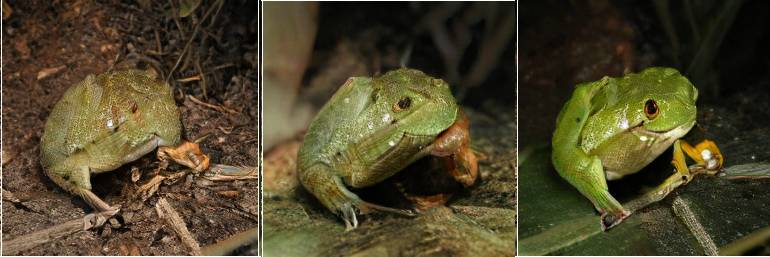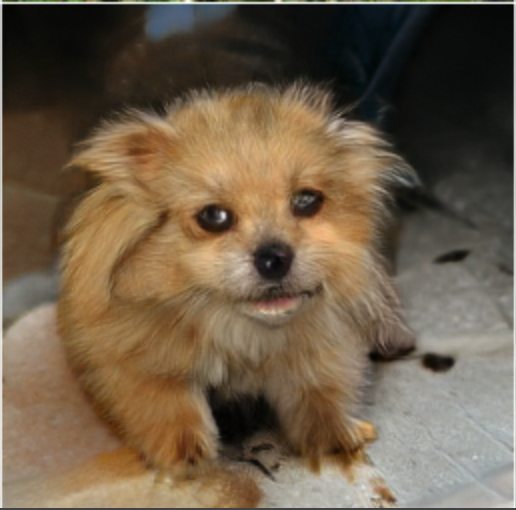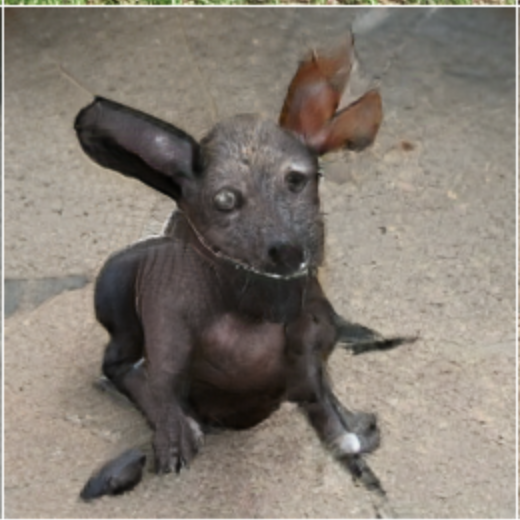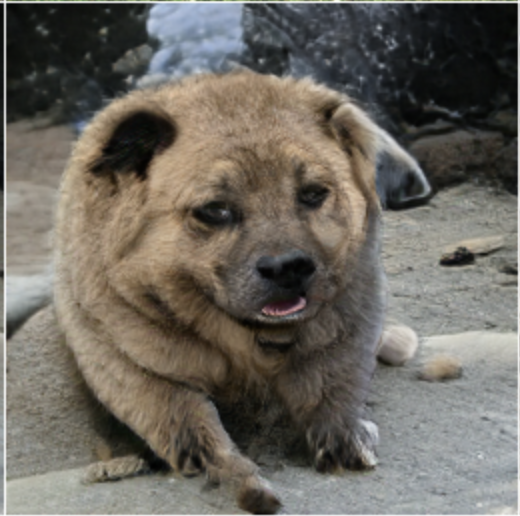Make Gross Monstrosities/Literal Animorphs with Google's BigGAN!
6Google made a tool based on BigGAN that basically morphs one procedurally generated image into another.
What that means is you tell the computer “hey, with all your knowledge of what an armadillo and a tree frog look like (which isn’t much tbh), make up picture of each and then morph them into each other” and it gives you this:

These guys are my favorite Frogadillos:

I call this one “Evolution”, morphing between Web Site and pay-phone

This cute little fella is a designer mixed breed, his father was a Chow Chow, and his mother was a Bee.

Here’s a Mexican Hairless Ant

When you combine a pug and a brown bear, you get a happy fluffball

…even when it some sort of Star Wars otter

- 4 comments, 8 replies
- Comment
How-to:
Here is the tool. It might look intimidating but I promise it isn’t. When you first open it, you have to kickstart the code or whatever. Just click

Runtimeat the top, and thenRun All.This might take a minute and you might get a popup about GPU; just click ignore. When you see a golden retriever turning into a hen at the bottom of the page, you’re good to go.
This is where you pick what you want to morph:

(if it doesn’t automatically start generating when you change a setting, just hit the round button at the top left)
button at the top left)
As an aside, wtf?
@Moose Requires google sign-in! Nice try, scammers.
@medz I mean, it was made by Google, but sure.
I make it a point to stay away from Google, so am looking for a volunteer with extra time on your hands:
I’m curious to see Nancy Pelosi morph into Jeff Sessions and vice-versa. [Won’t be seeing much of one, but probably way too much of the other, now]
@phendrick They use pre-trained networks with 1000 image classes and specific politicians are not present there. You’ll need to collect lots of images of one or another and train a GAN on this data set.
As a ML developer it’s so surprising to see a state of the art GAN popping up on a completely unrelated website. I guess, the worldwide ML revolution is beginning.
@Fduch if you develop the machine to learn, is it really learning or just following your coded instructions?
@medz There are no coded instructions per se.
You just give it a book of problems and punish it for wrong solutions. Then you make an exams with problems that were not shown before. Are good exam results an indication of understanding? It depends.
If your questions are not good enough, it’s easy to cheat and have good grades without needing to understand anything.
What if the student managed to sneak all their notes to the exam? In some cases that makes it possible to get good exam result without much understanding. In that case, we need to limit the amount of information what the ML model can store, forcing it to find a more generalized explanations.
In practical terms, there is a whole field of “explainable” models. You can try changing you test examples a bit and look at the model reaction. Maybe the way it learned to discern between the wolf and a dog is just the presence of snow in wolf images?
I like to compare learning (and also programming) with compression. When you study Math, you’re given a big list of questions and answers (“if question=X1 then answer=Y1; if question=X2 then answer=Y2”) and you can learn a way to compress all that information to a small formula.
A lot of what brain does is just compressing a lifelong live video/audio/senses stream to a very limited storage of human brain. To do that, the brain needs to know how to compress an big image of hamburger to a small concept of hamburger; to compress a full video of a dull work day to a concept of a typical dull work day; to compress a video of a falling leaf to a concept of leaf + knowledge of physics. This conversion is lossy and the brain needs to learn what’s ordinary and what’s unusual, what’s important and what’s not important. Can you remember the shape of yesterday’s clouds in the evening? Probably no. unless they were really special. One important part of video compression is frame prediction.
And being able to predict what’s going to happen is pretty much what we’d call understanding.
@Fduch @medz Your post reminded me of this Google sheet that has been collecting hilarious examples of AI “cheating” at games/tests. Examples include:
@Fduch @Moose
I’m waiting to see if someone does one with Trump & an orangutan.
@rtjhnstn Not what you were looking for but it’s all you’re gonna get

